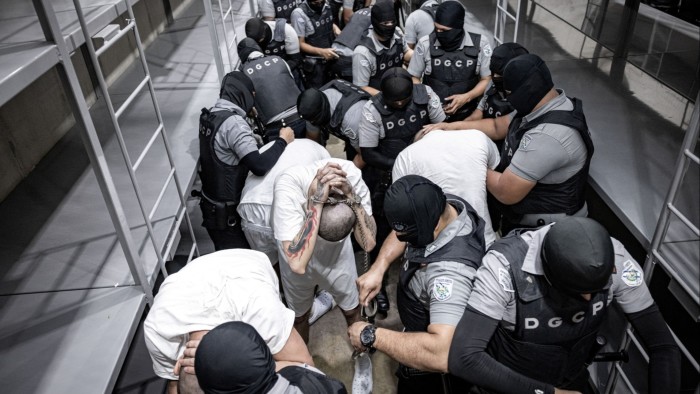US Supreme Court allows Trump to use centuries-old law for deportations

Unlock the White House Watch newsletter for free
Your guide to what the 2024 US election means for Washington and the world
The US Supreme Court has lifted a freeze on deportations under a centuries-old law, allowing Donald Trump’s administration to remove alleged members of a Venezuelan gang using wartime powers.
The top court on Monday voted 5-4 to remove a temporary order blocking a White House directive that last month invoked the Alien Enemies Act of 1798 to remove the alleged gang members.
The ruling is a win for the president, who has signed a flurry of executive orders since returning to the White House in January, with a focus on immigration.
The Supreme Court did not rule on the government’s use of the act, or the assertion that it did not apply to the Venezuelan men who challenged Trump’s directive, instead issuing a narrow order arguing they had filed their lawsuit in the wrong jurisdiction.
“The detainees are confined in Texas, so venue is improper in the District of Columbia,” the justices wrote in an unsigned order.
The ruling will allow the government to use the controversial statute — last invoked in the second world war to intern non-US citizens of Italian, German and Japanese descent — to accelerate deportations in ways that critics argue flout due process.
The temporary restraining order had blocked the removal of all non-US citizens in custody who were subject to Trump’s directive.
However, the court said “detainees subject to removal orders under the AEA are entitled to notice and an opportunity to challenge their removal. The only question is which court will resolve that challenge.”
Lee Gelernt, the American Civil Liberties Union lead counsel representing the Venezuelan men, said the ruling’s “critical point” was that “individuals must be given due process to challenge their removal under the Alien Enemies Act. That is an important victory.”
The White House did not immediately respond to a request for comment.
The top court’s decision injects fresh drama in fraught legal proceedings around the Trump administration’s deportations of alleged illegal immigrants.
Trump attacked the lower court judge who issued the temporary restraining order, James Boasberg, and called for his impeachment. The Supreme Court’s chief justice, John Roberts, criticised Trump for the threats.
Boasberg has said he was weighing whether there were grounds to hold the government in contempt after the alleged Venezuelan gang members were flown to El Salvador despite his ruling that the planes they were on be turned around.
The US government has said it has complied with the judge’s rulings. It unsuccessfully challenged Boasberg’s order in an appellate court, before turning to the Supreme Court.
The three liberal justices on Monday wrote in dissent, with conservative justice Amy Coney Barrett joining them in part.
“The court’s legal conclusion is suspect,” wrote liberal justice Sonia Sotomayor. It fails to mention “the grave harm plaintiffs will face if they are erroneously removed to El Salvador” and has no “regard for the government’s attempts to subvert the judicial process throughout this litigation”.
The court “should not reward the government’s efforts to erode the rule of law”, Sotomayor added.





